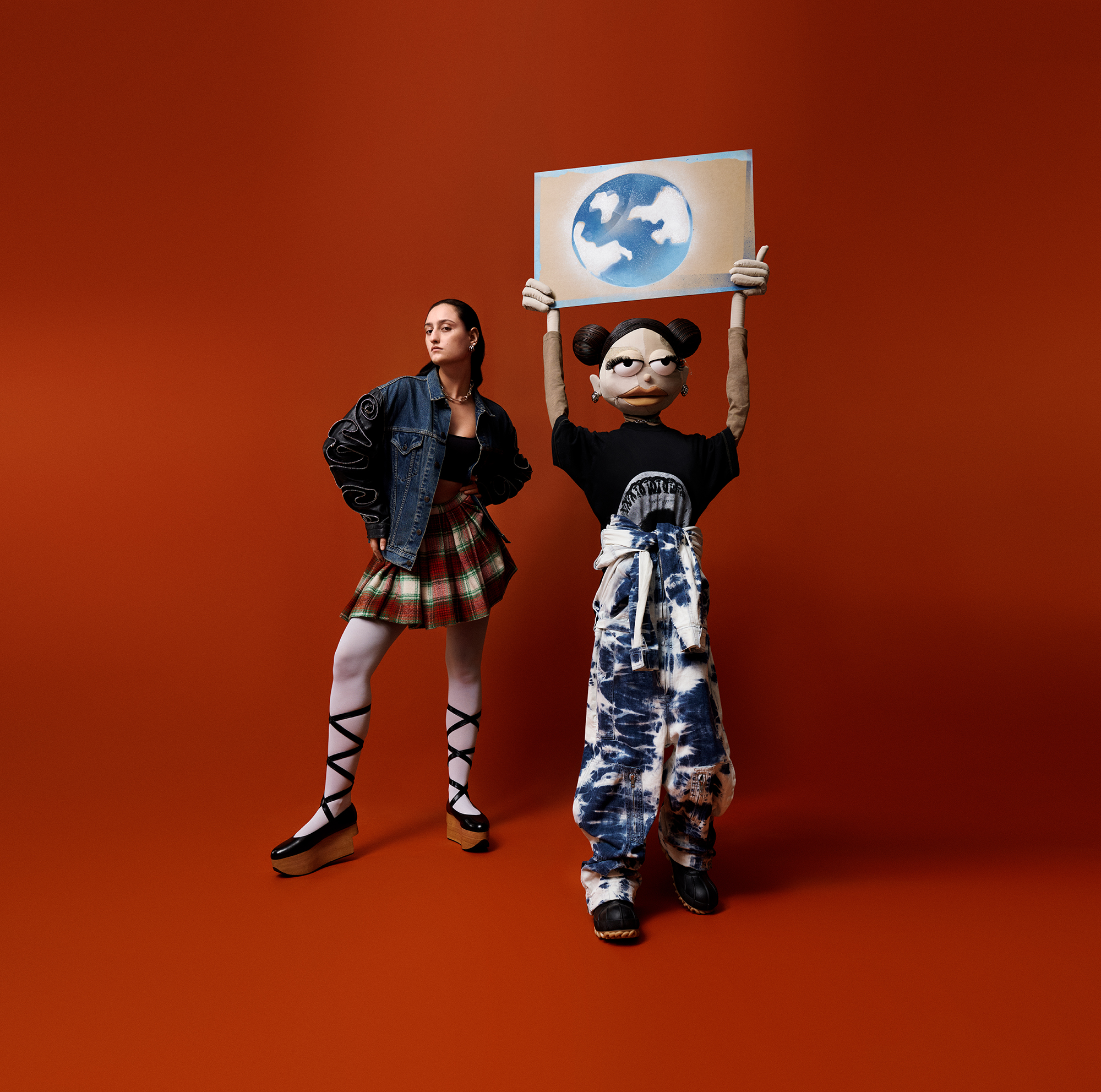02 : 12 : 22 : Weekly Debrief
This week: Humanising the fertility sector, saying goodbye to fast fashion, spotlighting the future of food innovation, and some surprising sales stats from Black Friday.
1. Gaia strives to humanise the fertility sector
UK – The world’s first IVF insurance business, Gaia, has had a rebranding courtesy of London-based branding agency Ragged Edge. Its new look presents a more inclusive and accessible view of IVF – and more agency over individual fertility.
Gaia offers personalised finance based on calculations of the number of IVF rounds a person might need. Members pay an initial insurance premium; those that do not leave hospital with a child pay no more than that, while those who do pay back the cost of treatment in instalments.
The rebranding is designed to reset traditional perceptions of IVF from exclusive to inclusive, giving families of all types and varying resources agency over their own fertility.
‘I know from personal experience how alienating, painful and confusing the IVF journey can be. Gaia is here to create a radical change in society and… create a brand that could lead this new consumer category,’ says founder Nader AlSalim of the rebranding. ‘What [Ragged Edge] created is bold and unflinching, without ever compromising on empathy for the people we serve at an uncertain time in their lives.’
The fertility market is an evolving sector and Gaia joins brands such as The New Hope Fertility Center in New York in striving to humanise the fertility sector.
2. Resale platform Vestiaire Collective bans fast fashion
Global – As the resale fashion market experiences a boost, one platform is saying a hard no to fast fashion brands. Paris-based Vestiaire Collective has issued a list of banned fast fashion brands that it believes jar with its certified B Corp status.
Brands on the banned list include Asos, Boohoo, Burton, Coast, Dorothy Perkins, Karen Millen, Miss Selfridge, Missguided, Nasty Gal, Oasis, Pretty Little Thing, Shein, Tezenis, Topman, Topshop (and collaborations) and Warehouse. These are all brands, according to the company, that meet fast fashion criteria of low product quality, poor working conditions for garment workers and significant carbon footprint.
The decision was prompted by a team visit to Kantamanto market in Ghana – the largest for second-hand clothing in West Africa – led by the Or Foundation – which demonstrated how most of the garments are of such poor quality that they are sent to landfill. The decision marks a growing push-back against the wastefulness of fast fashion and towards driving more circular models of fashion consumption, as we detail in Resale Redux.
 Vestiaire Collective, France
Vestiaire Collective, France
3. FDA approves first lab-grown cultivated meat
US – Although the concept of lab-grown meat is not new, it has not made the jump into commercial availability in our grocery stores – until now. Berkeley, California-based Upside Foodshas received approval from the US Food and Drug Administration (FDA) that its lab-grown meats are safe to eat.
‘This is a big moment for the future of food,’ says Upside COO Amy Chen, adding that the company plans to launch its lab-grown chicken first in restaurants. It is also developing other lab-foods including duck, beef, lobster and scallops.
Cultivated meat is getting closer to hitting our plates and with significant supply, cost and environmental challenges facing the food and drinks sector, as detailed in our Adaptive Appetitesmacrotrend, the tipping point for consumer acceptance could be approaching sooner rather than later.
 Photography by Shvets
Photography by Shvets
4. Supermarket grows food from food waste
Belgium – Organic grower Eclo has teamed up with organic supermarket group Bio-Planet to rescue unsold loaves of bread and put them to good use as a base for growing mushrooms.
Based in Brussels, Eclo collects the bread from the supermarkets and mixes it with sawdust to create a growing medium. It then uses its 3,000-square-metre network in the Cureghem Cellars beneath the city to grow organic eryngii and nameko mushrooms, with the process taking 4–12 weeks. The mushrooms are then sold back at Bio-Planet’s supermarkets.
Eclo, which grows micro-herbs too, also uses brewing remnants from two breweries in Brussels. In 2021, 61% of the grower's mushroom substrates included 'waste' material. The concept may sound unappealing, but attitudes to what we consider to be traditionally palatable foods are changing, as detailed in Grotesque Grub and Food Austerity Innovators.
.
5. Stat : Black Friday hits record spending despite economic uncertainty
US – This year, online spending by Americans rose by 2.3% on Black Friday, according to a report by Adobe Analytics, providing financial hope for those operating in the retail sector.
Given the context of the cost of living crisis, businesses were concerned about the success of this year’s holiday season – a time when spending usually peaks and enables some businesses to reach net profit. Pre-event predictions were pointing to slow spending, but analysts were proved wrong as customers delivered beyond expectations and previous records.
It had been expected that those who chose to shop might to do so in physical stores due to lack of accessibility to real-life destinations in the past few years, but e-commerce once again came out on top. Many Americans turned to their smartphones to do their shopping, with mobile shopping accounting for over 48% of all Black Friday digital sales in the US.
Events like Black Friday continue to highlight the emerging distinction between online and offline retail. While online is preferred for quick ticks, pre-planned purchases and fast browsing, stores are designed for meandering and spontaneous purchases, as well as service add-ons, all of which aren’t so suitable for Black Friday given its chaotic nature.
To future-proof your world, visit The Future Laboratory's forecasting platform LS:N Global for daily news, opinions, trends, sector specific insights, and strategic toolkits.
Want to read more?
Become a member today!
Sign up to one of our trends intelligence platform, LS:N Global and get unlimited access to a hive of insights - from microtrends and macro trends to market reports, daily news, research across eight industry sectors and much more.
Discover our memberships
Already a member? Click here to login
